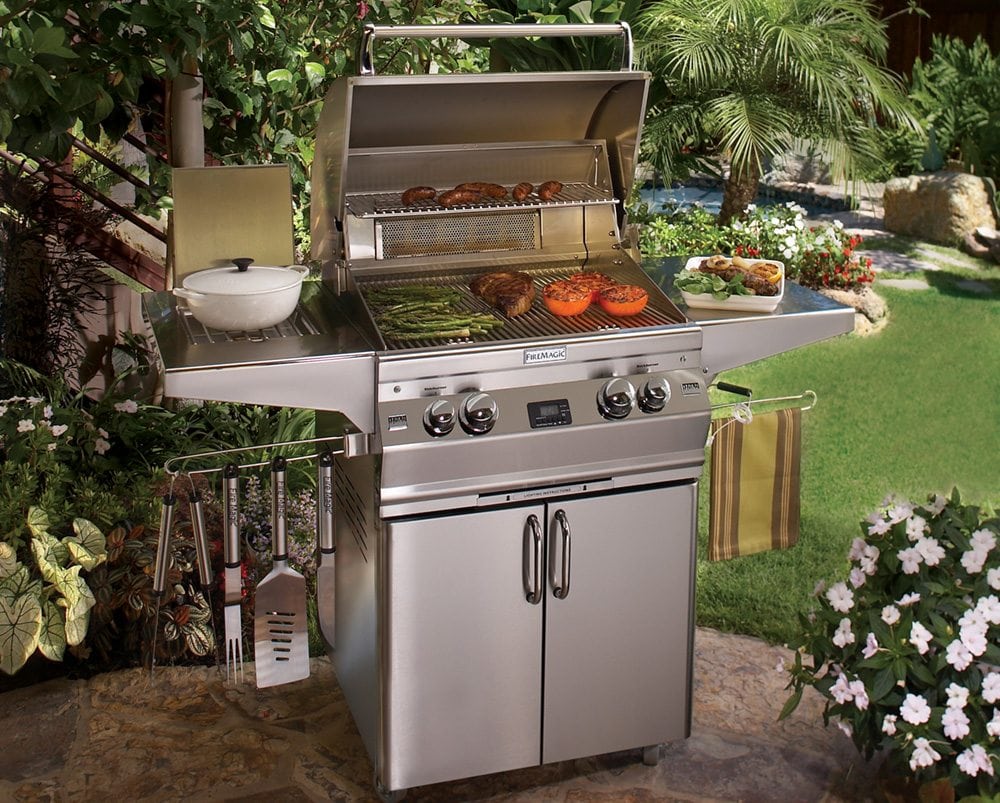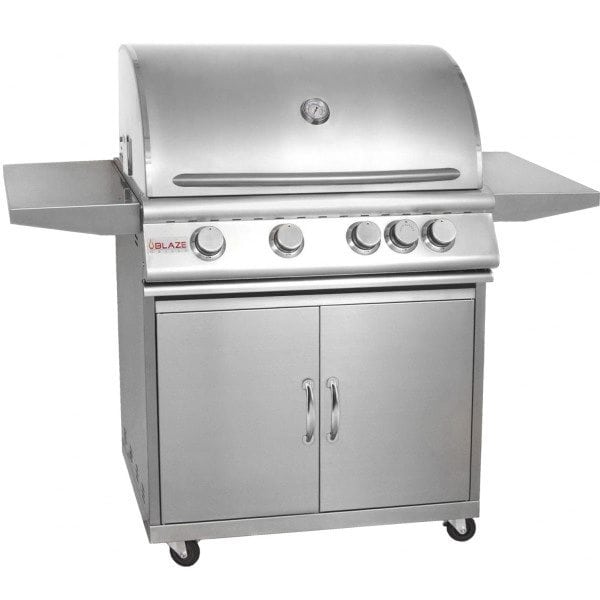Ahhh… the thrill of the grill!
Grilling outdoors is appetizing and rewarding, but choosing the wrong grill can turn out to be quite frustrating. At YCNGA, we sell only premium gas grills you won’t find in the big box stores – with exceptional warranties to match. Buying the right grill for your cooking needs and space is an important decision. Our professional staff at YCNGA can help you find what you’re looking for.
Here are some things to consider… so you don’t get burned.
Learn More: How To Choose Your Grill • Grill Features • Burners / Mounting • Warranties / Installation • Recipes
Features
Grills come with more and more features every season, from LED lighted panels to MP3 player speakers. Here are some of the most popular features to consider…
- Side Burners
- Cutting Boards / Ice Bucket
- Easy Ignition
- Infrared Searing / Bottom Burner
- Back Burner
- Rotisserie
- Smoker Box
- Night Lights / Glow Knobs
- Multiple Level Cooking Surfaces
- Temperature Gauges with Meat Probes
Features
Grills come with more and more features every season, from LED lighted panels to MP3 player speakers. Here are some of the most popular features to consider…
- Side Burners
- Cutting Boards / Ice Bucket
- Easy Ignition
- Infrared Searing / Bottom Burner
- Back Burner
- Rotisserie
- Smoker Box
- Night Lights / Glow Knobs
- Multiple Level Cooking Surfaces
- Temperature Gauges with Meat Probes
Burners
The burners will take most of the heat in your grill. Stainless steel or brass burners may prove the most durable. Aluminum burners tend to burn out over time, while iron of course is ever vulnerable to rust. Most will work well as long as you clean them properly.
First and foremost, you want the burner system to be made out of high-grade stainless steel. Any other material will not hold up well and should be avoided (unless you are looking at infrared cooking systems).
There are many different burner shapes including bowties, H-shaped, E-shaped and tubes. They will all do a nice job of cooking as long as they are spaced to provide even heat across the entire cooking surface, can be independently controlled with at least two control knobs, and are in proportion to the grill. Beware of low-end manufacturers who put a tiny burner in a big grill.
(sometimes called Flavorizers): The job of the flame taming system is to vaporize, or funnel away, juices and other drippings that fall from what you’re cooking before they can catch fire and cause flare-ups. And just like burner shapes, there are many different methods used to tame flare-ups including V-shaped stainless steel bars and ceramic grids. The most important thing to look for is that the flame tamer is directly over the burner, and that the burner is completely covered. Check the distance between the burner and the cooking grate. The closer the burner, the more likely you’ll have flare-ups.
The best cooking grates are made of durable materials like individually welded stainless steel, porcelain-enameled steel or cast iron. The grates should be heavy and solid. All of these materials will work well as long as you clean them properly and take care of them. Keep in mind porcelain-enameled grates will rust if they get chipped.
The British Thermal Unit, or BTU, rates how much heat a grill’s burners create, which is not necessarily an indication of how well the grill will cook. Larger grills naturally have a higher BTU because their burners are bigger, but a large grill that does not hold or distribute its heat evenly will not be able to cook as well as a smaller grill that does both of those things well. So don’t just rely on BTU when selecting your perfect grill.
If you like grilling steaks, the gas grill you purchase should be able to reach at least 600 degrees. You need to get the steak on and o the grill as soon as possible so it does not dry out. A high quality gas grill will reach very high temperatures, but will also grill delicate items at low temperatures- with minimum flare-ups.

Mounting
Some grills come packaged with a standard cart, but others allow you to mount them in many different configurations.
The most popular form of mounting has wheels that allow you to easily move the grill from one location to another. Make sure the cart you select is solidly constructed and easy to move. For the best longevity, look for stainless steel carts with welded joints instead of screws or rivets. If the cart has doors, make sure they open and close easily and are evenly aligned.
Use this if you want to securely install your grill on a deck or patio, but you don’t want a full-blown outdoor kitchen.
From simple set-ups to very elaborate ones, outdoor kitchens are gaining in popularity. You’ll need to find a good contractor to help you construct your outdoor dream kitchen, but a natural gas grill should be the center of your design. Consider adding burners and warming drawers.

Warranties
High-end grill manufacturers offer warranties of 10 years or longer on their grill’s main components. This should keep you from having to spend money on parts — which saves you in the long run. Many even offer lifetime warranties on some parts, so make sure you ask your sales rep what’s covered and for how long. Warranties are a good way to distinguish higher-end grills from lower-end grills because higher-end grills will have much better warranties — and we take care of filing all paperwork and securing your warranty for you… at no extra cost.


Installation
If you’ve never had a gas grill before, you will need a technician to install the gas line and / or the “quick-connect” hose you will use to hook up your gas grill. At York County Natural Gas Authority we offer installation of all products we sell. We will also provide piping and installation for grills purchased elsewhere. We are the gas experts, after all. However, if you choose another installer, here are some questions you should ask to make sure you get an installer you can trust.
- Are they licensed, bonded and insured?
- Do they follow all building codes and pull required permits?
- How long have they been in business?
You want your technician to have a long and positive track record for installing gas lines for grills in your area. Ask for references and only use an installer from a company you trust. You want to make sure the installer you use will be around for many years to come so they can provide maintenance and repair your grill if you need it.











